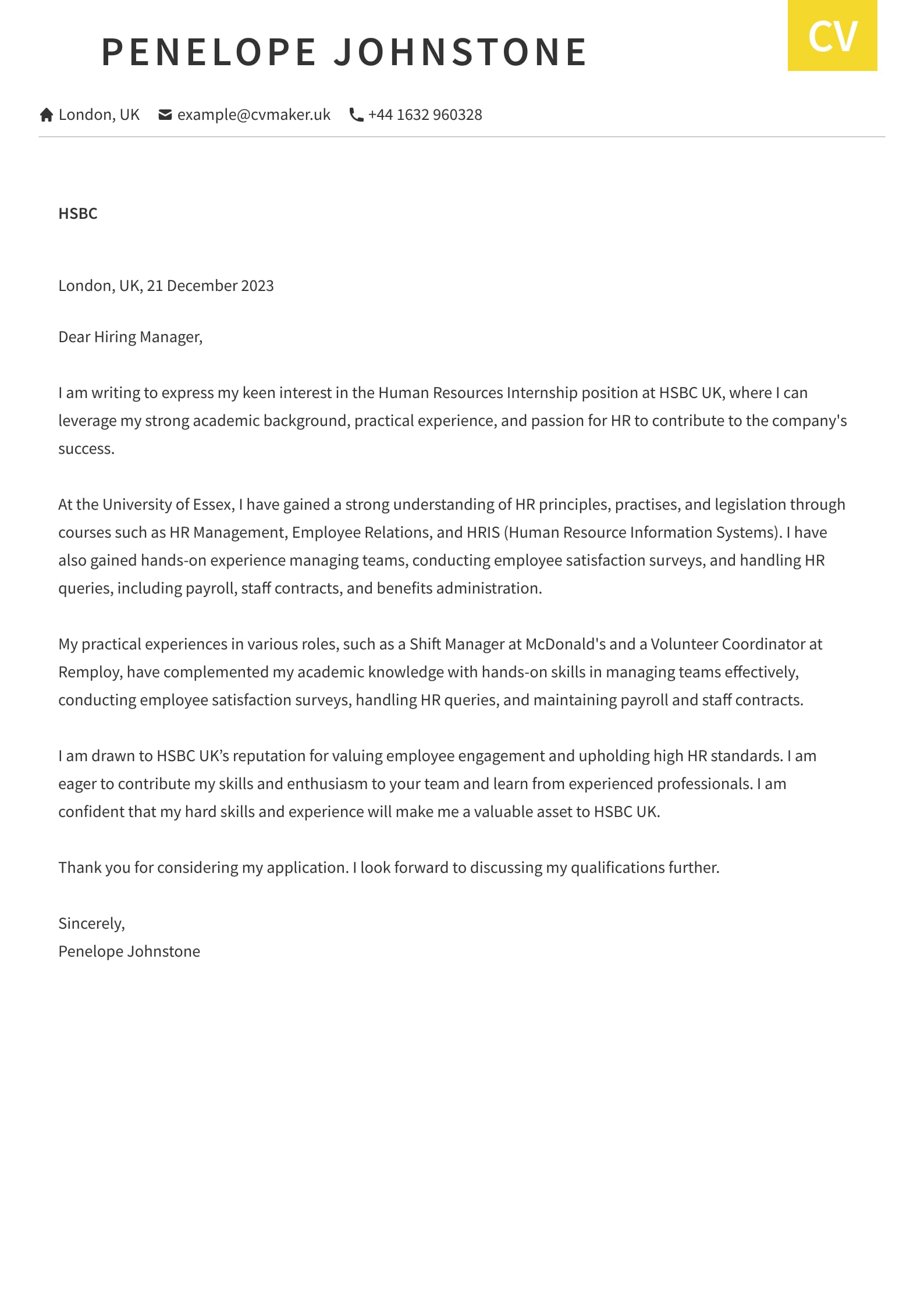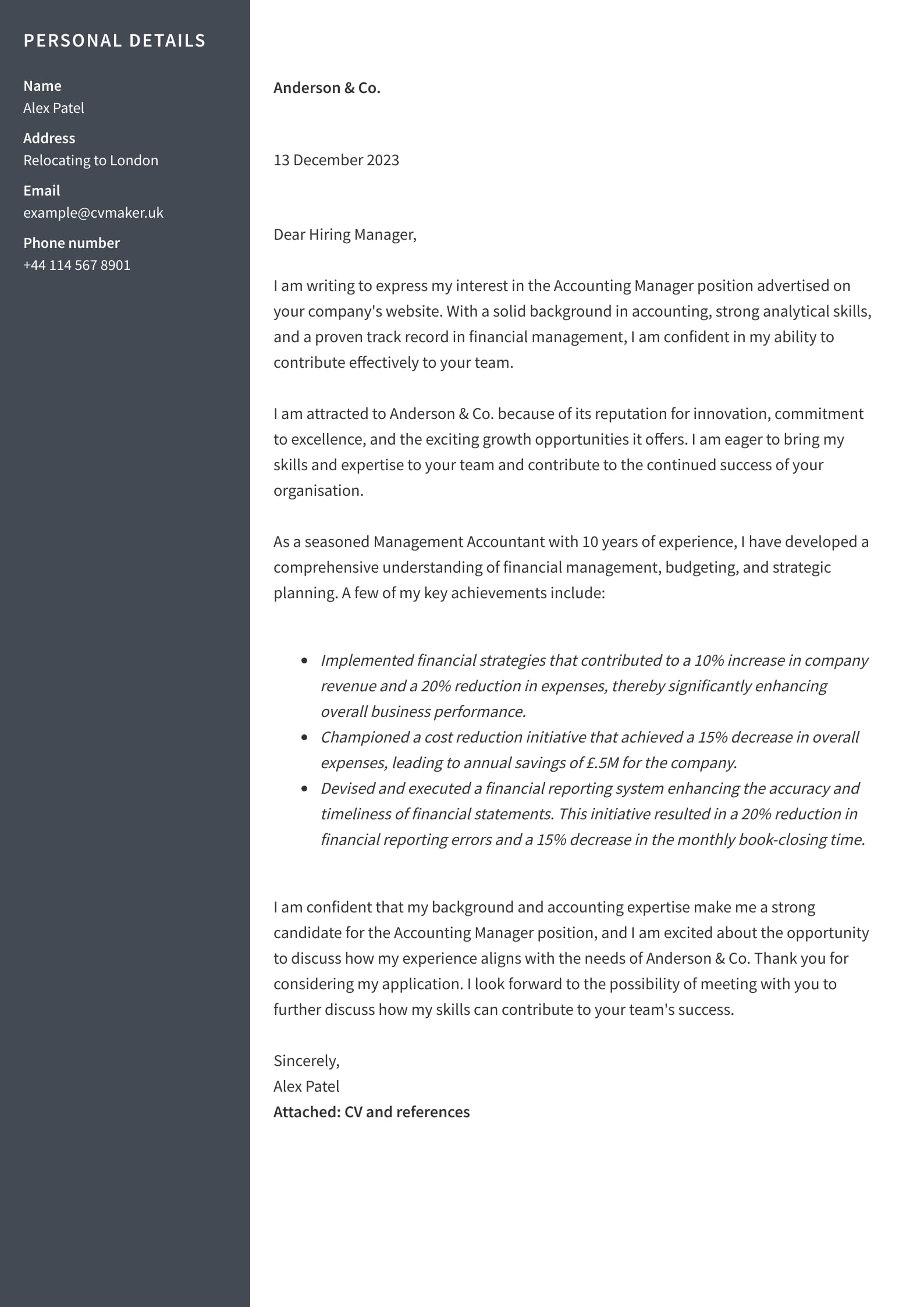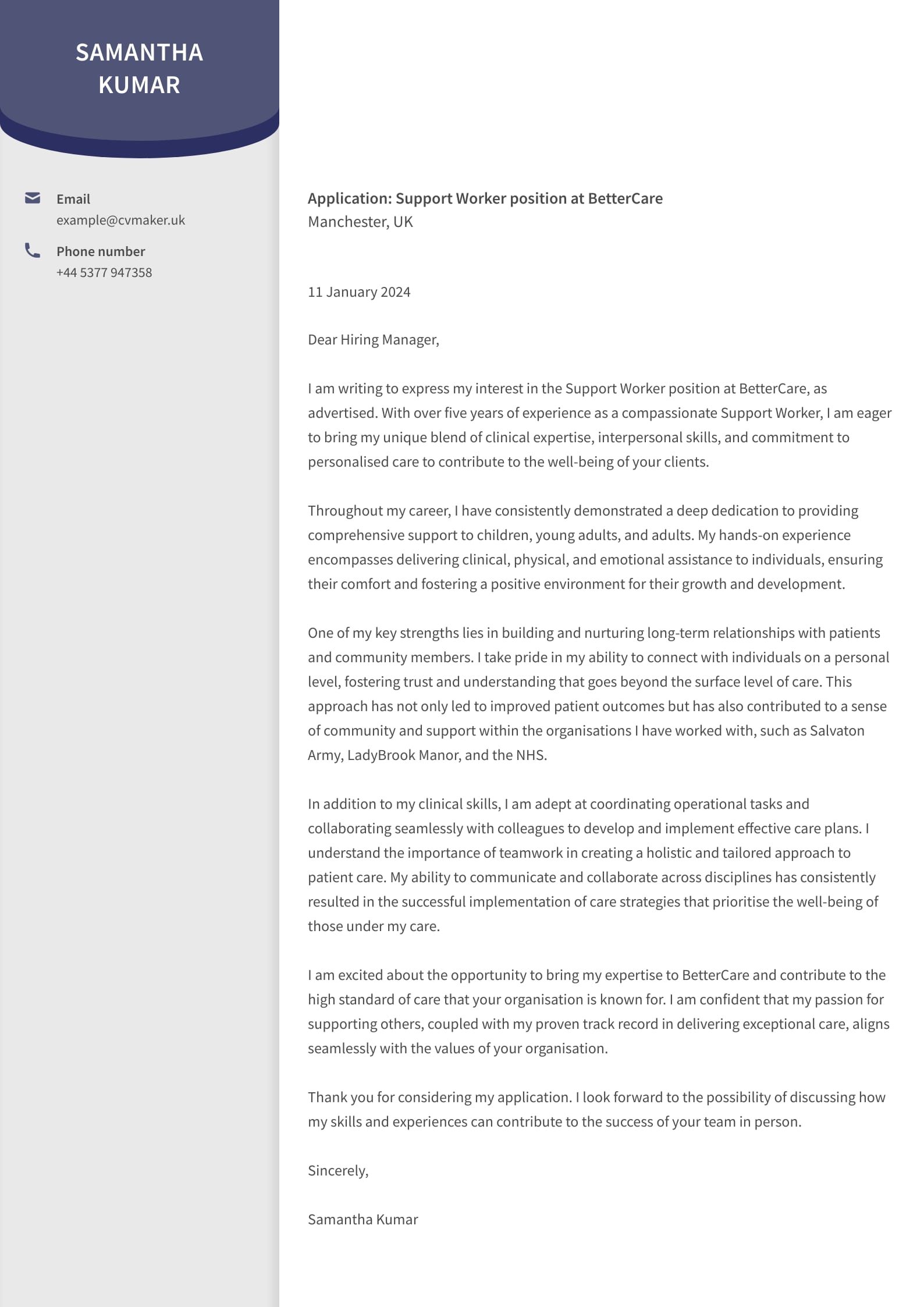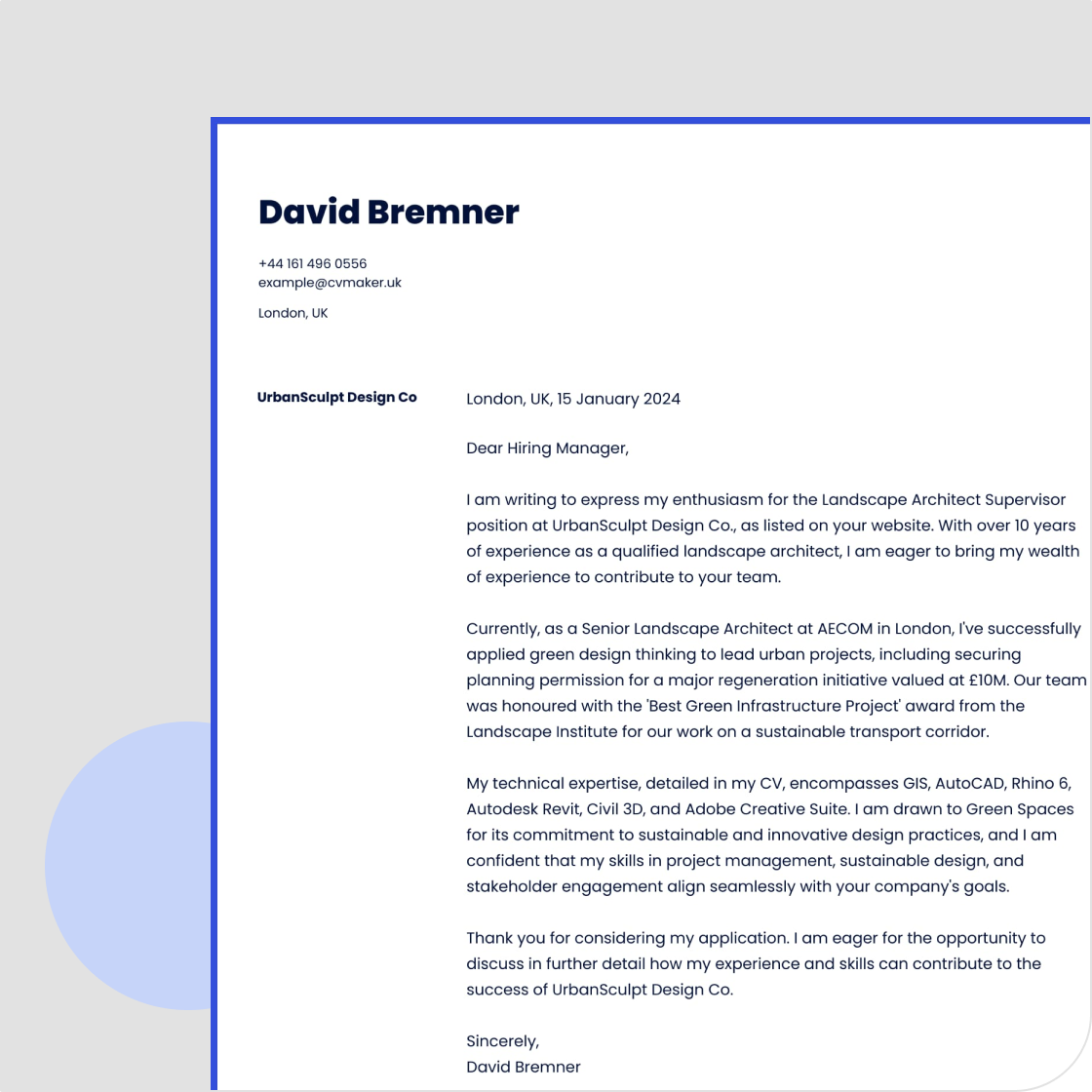In this article, we cover:
What is a cover letter
How to structure your cover letter
Examples of cover letters
Tips on how to format your cover
When writing cover letters, there is a standard and universally accepted structure or outline that should be followed. Similar to writing a good CV, a cover letter must also be tailored to the specific job. Essentially, it serves as an introduction to the recruiter or hiring manager. However, where a CV is a bit more strategic, a cover letter is much more personal, it’s your chance to elaborate on key achievements, skills, or experiences from your CV.
For many people, a cover letter is the most challenging part of the job application with some skipping job applications if a cover letter is required. We are here to change that by providing the tools, resources, and knowledge you need to write a successful cover letter. In the end, a well-structured cover letter showcases your qualifications and interest in a job position. If you’re struggling with how to structure yours, let’s get started!

What should the structure of a cover letter be?
A good cover letter structure is concise and focused, emphasising the main reasons why you're a fitting candidate for the position.
Break down each segment: introduction, body paragraphs, and conclusion.
Clarify the role of each segment: the introduction grabs attention, the body elaborates on qualifications, and the conclusion summarises and expresses enthusiasm.
How do I structure my cover letter?
Strive to maintain brevity and conciseness in your cover letter. Identify and highlight two to three primary areas of expertise, reserving additional details for a potential follow-up interview.
The ideal cover letter layout usually consists of:
Contact information
Salutation
Opening paragraph
Body paragraphs
Closing paragraph
Sign-off
1. Introduction structure of a cover letter
Once you've verified all details for accuracy, you can start writing your cover letter! The opening section, which should remain consistent across all cover letters, serves as an introduction. Ideally, this section should solely focus on articulating your enthusiasm for the role, detailing your current professional status or circumstances, and outlining your career goals, interests, and motivations for pursuing the position.
Example
I am writing to express my genuine enthusiasm for the Receptionist position at Essential Spa. With a passion for delivering exceptional customer service and creating a welcoming atmosphere, I am eager to contribute my skills to enhance the guest experience at your esteemed spa.
For more tips and examples, explore our related article how to start a cover letter.
2. Body structure of a cover letter
In any letter format, the structure is typically comprised of one or two paragraphs. The cover letter body focuses on key skills, specific experiences, and potentially noteworthy** achievements** from past roles, training, or qualifications.
The amount of information you provide may vary depending on whether you're a student, a recent graduate, or a seasoned professional. For those with limited to no experience, it's advisable to emphasise skills, while individuals with significant experience should highlight key accomplishments to showcase their capabilities.
Example
During my academic journey, I gained a solid understanding of fundamental civil engineering principles, including structural analysis, transportation engineering, and environmental sustainability. I completed internships at Reeds, where I had the opportunity to apply classroom knowledge to real-world projects and collaborate with multidisciplinary teams.
I am particularly impressed by Bynds commitment to innovation and sustainability in civil engineering projects. I am eager to learn and grow as a professional within your organisation, contributing fresh perspectives and a strong work ethic to the team.
For those navigating career changes or perhaps categorised as frequent job changers, a cover letter serves as an avenue to address any gaps or concerns in their CVs, if applicable.
3. Conclusion structure of a cover letter
Similar to the introduction, this section can also be standardised to streamline the cover letter writing process. Here, the key points need to be summarised, reiterating your enthusiasm for the position. Additionally, expressing gratitude for the opportunity and inviting further discussion while respectfully specifying the company name is essential.
I am impressed by JC Construction's commitment to innovation and its dedication to creating a positive workplace culture. I am confident that my skills in HR administration, coupled with my strategic mindset, make me a strong fit for contributing to the growth and success of your HR department. Thank you for considering my application; I look forward to discussing how my experience aligns with your needs. Please find my CV attached for your reference.
Sincerely,
Sarah Williams
For more tips and examples, explore our related article how to end a cover letter.
Cover letter examples
When considering the length of a cover letter, there isn't a one-size-fits-all rule, but the key principle is to customise it to the specific job you're applying for while aligning it with your CV. The optimal length for a cover letter falls between half to a full page, comprising three to four paragraphs. It should be concise yet articulate in explaining why you're well-suited for the position.
Student cover letter example

Download this student cover letter in PDF
For more tips, refer to the student CV and matching student cover letter.
Accounting cover letter example

If you're working in finance, check out the following guides and examples for more inspiration.
Support worker cover letter example

Refer to the below guides for further guidance.
Tips on how to format a cover letter
In order to write a well-structured cover letter, the following formatting tips could be instrumental in achieving that goal.
Strive for a one-page cover letter, prioritising quality over quantity.
Opt for a professional font and adhere to standard formatting guidelines.
Address the cover letter to a specific individual, if possible.
Proofread meticulously to weed out any grammar or spelling errors.
Enhance clarity and readability by incorporating bullet points or subheadings.
Tailor the content to align closely with the requirements of the particular job.
Key takeaways
Ultimately, writing a good cover letter hinges on upholding a well-structured layout that enhances readability. As AI-generated cover letters gain traction, recruiters or hiring managers can increasingly detect non-human writing. However, by employing our expert advice and utilising the array of cover letter examples and templates, you can significantly boost your chances of securing more job interviews!
Next steps?
Explore our products and services below to help you get started!
CV Builder: create a tailored and well-formatted CV or cover letter using our easy-to-use builder.
Cover Letter Builder: apply with a matching cover letter template with a clear layout so you can easily personalise and adjust to your career goals.
CV Writing Service: connect with one of our experts to receive feedback and get quick, professional advice on tailoring your CV to a specific job.
Blog: see our guides and brief articles to educate yourself on the best strategies to improve your job prospects.
FAQs
How to write a British cover letter?
This varies as some employers consider cover letters an essential part of the application process, while others may prioritise CVs. However, it's generally advisable to include a cover letter to demonstrate your interest and suitability for the position.
Do employers read cover letters UK?
Yes, as cover letters help both potential employers and recruitment specialists quickly get right to the heart of who you are and what you want before they even begin to look at your CV.
What is the official format of a cover letter?
The official format of a cover letter typically includes:
Your contact information
The recipient's contact information
A formal salutation
Clearly defined sections: introduction, body paragraphs, and conclusion
A professional closing and your signature.

)



)

